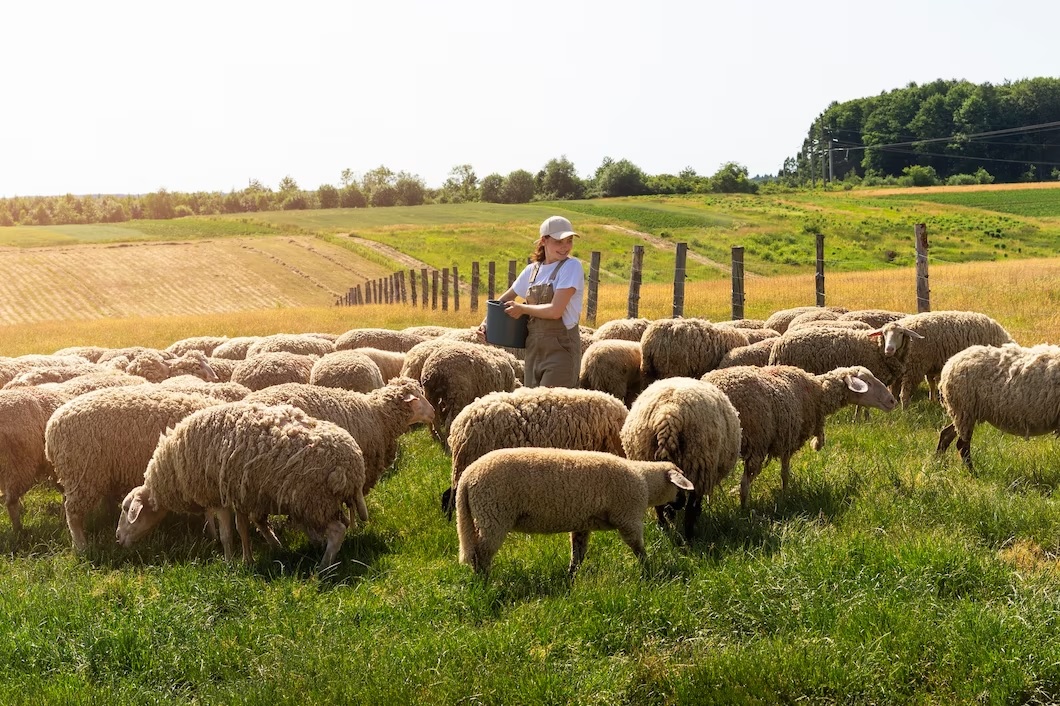Managing livestock efficiently is a vital aspect of Australian agriculture. Whether it’s cattle, sheep, or other livestock, effective management practices play a crucial role in maximizing productivity and ensuring the welfare of the animals. In this blog, we will explore the seven essential elements of efficient livestock management, providing valuable insights for Australian farmers. So, let’s dive in and discover the key factors that contribute to successful livestock management!
Optimal Grazing Systems: Nurturing Pastures for Healthy Livestock
Maintaining healthy pastures is fundamental to livestock management. Implementing optimal grazing systems allows for the rotation of animals across various paddocks, preventing overgrazing and promoting healthy regrowth. By carefully managing grazing patterns, farmers can optimize nutrient intake, reduce erosion, and enhance the overall productivity of their land.
Strategic Animal Nutrition: Balancing Diets for Optimum Health
Providing a well-balanced diet is essential for the overall health and performance of livestock. Proper nutrition ensures adequate growth, reproduction, and immune system function. Farmers must consider the specific nutritional requirements of different animals, ensuring they receive the right combination of proteins, carbohydrates, vitamins, and minerals. This attention to detail helps prevent deficiencies and promotes robust and productive livestock.
Effective Animal Health Management: Preventing and Treating Diseases
Maintaining good animal health is paramount for livestock productivity and welfare. Implementing effective health management practices involves regular monitoring, vaccination programs, and prompt treatment of diseases and parasites. Regular veterinary checks, proper sanitation, and biosecurity measures are critical in preventing the spread of illnesses and minimizing the impact on the herd or flock.
Efficient Breeding Programs: Selecting for Superior Traits
Breeding programs play a crucial role in improving livestock genetics and enhancing desirable traits. Farmers should carefully select breeding stock based on factors such as growth rate, resistance to diseases, and overall productivity. By employing strategic breeding programs, farmers can gradually develop herds or flocks that are better suited to their specific environmental conditions, resulting in more resilient and high-performing animals.
Skillful Stockmanship: Caring for Livestock with Expertise
Skilled stockmanship is a cornerstone of efficient livestock management. It involves understanding animal behavior, handling livestock with care and confidence, and recognizing signs of distress or illness. By developing a strong bond with their animals, farmers can reduce stress levels and enhance animal well-being. Skillful stockmanship also ensures efficient handling during tasks such as mustering, shearing, and transport.
Well-Designed Facilities: Promoting Livestock Comfort and Safety
Properly designed and maintained facilities are crucial for promoting livestock welfare and optimizing operational efficiency. Well-constructed yards, fences, and water systems enable smooth movement, minimize injuries, and streamline handling procedures. For instance, wool sheds with excellent ventilation create a cozy atmosphere for sheep during shearing, minimizing stress and ensuring top-notch wool quality. Investing in thoughtfully designed facilities yields higher productivity and better animal well-being.
Data-Driven Management: Utilizing Technology for Improved Decision-Making
In the digital age, data-driven management has become increasingly important in livestock farming. Utilizing technology, such as electronic identification systems and data recording software, enables farmers to collect and analyze crucial information. This data can inform decisions related to breeding programs, feed management, and health monitoring, ultimately leading to more efficient and informed management practices.
Striving for Sustainable and Efficient Livestock Management
Efficient livestock management encompasses a variety of interconnected elements, from grazing systems and nutrition to animal health and data-driven decision-making. By prioritizing these essential elements, Australian farmers can improve productivity, animal welfare, and the sustainability of their operations.
Embracing efficient livestock management practices not only benefits farmers but also contributes to the overall growth and prosperity of the Australian agricultural industry. So, let’s continue to strive for excellence in managing our livestock, ensuring a bright future for Australian farming.
